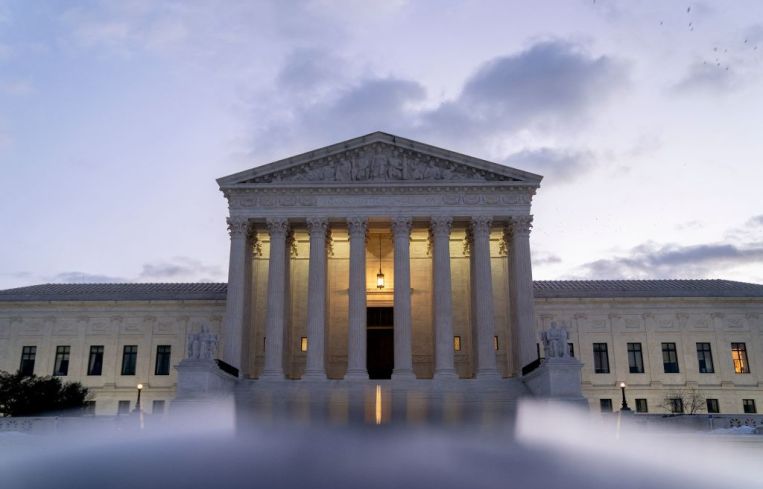Supreme Court Blocks Federal Vaccine Mandate for Private Employers
By Celia Young January 13, 2022 3:11 pm
reprints
The Supreme Court blocked the White House’s vaccine mandate for larger private employers — striking down a key part of the Biden administration’s pandemic response: vaccinating the population against the coronavirus.
The mandate would have required employees at companies with at least 100 workers to get fully vaccinated by Jan. 4, 2022 — or test weekly for the virus. The federal Occupational Safety and Health Administration announced it wouldn’t implement citations for failing to meet the vaccine requirement before Jan. 10 or for the testing requirement before Feb. 9, due to the program’s somewhat confusing legal challenges.
In its initial oral arguments, the Supreme Court leaned towards blocking the mandate, even as cases of the coronavirus spurred on by the omicron variant raged across the country — setting records last weekend for the number of cases reported in a single day at 1.5 million. In its decision Thursday, the court did allow a separate mandate requiring vaccinations among health care workers at facilities receiving federal money.
The Supreme Court justices voted six to three to block the private sector mandate, with the liberal justices dissenting, while they voted five to four to uphold the requirement for health care workers, with Chief Justice John Roberts Jr. and Justice Brett Kavanaugh joining the majority, The New York Times reported.
The court was certainly aware of the impact of the virus during its Jan. 7 oral arguments; seven justices donned masks and Justice Sonia Sotomayor, who has diabetes, participated remotely from her chambers, The New York Times reported.
“This is a pandemic in which nearly a million people have died,” Justice Elena Kagan said on Jan. 7. “It is by far the greatest public health danger that this country has faced in the last century. … We know that the best way to prevent spread is for people to get vaccinated.”
While the court has routinely upheld state vaccine requirements, the case before the Supreme Court rested on whether Congress had authorized the president to institute a vaccine requirement, The Times reported.
A legal battle quickly followed President Joseph Biden’s Nov. 4 announcement of the requirement, which would impact about 84 million workers, and OSHA paused the enforcement of the rule as it awaited the outcome of the Sixth Circuit Court of Appeals. A three-judge panel from that court had said the vaccine mandate was lawful after a lower court struck it down.
The Sixth Circuit heard just one of the more than 30 court challenges from Republican attorneys generals and a smattering of private companies.
The sheer volume of the lawsuits forced the United States Department of Justice to approach the cases much like a senior citizen playing Bingo — writing each suit on a ping-pong ball and choosing one at random from a raffle drum. No joke — Congress established the lottery system in 1988 to avoid accusations of bias, Time reported.
About 75 percent of the U.S. population has received at least one dose of a coronavirus vaccine, while 63 percent are fully vaccinated. About 37 percent of the fully vaccinated population received their booster doses, according to CDC data as of Jan. 11.
Celia Young can be reached at cyoung@commercialobserver.com.



